- Home
-
Research Groups
Division Groups
- Artificial Photosynthesis
- Catalysis: Reactivity & Structure
- Electrochemical Energy Storage
- Electron- and Photo-Induced Processes for Molecular Energy Conversion
- Neutrino and Nuclear Chemistry
- Surface Electrochemistry and Electrocatalysis
Associated Groups
- Catalysis for Alternative Fuels Production
- Nanostructured Interfaces for Catalysis
- Structure and Dynamics of Applied Nanomaterials
- People
- Operations
- News
- Events
News Archives
Past Year's Chemistry News
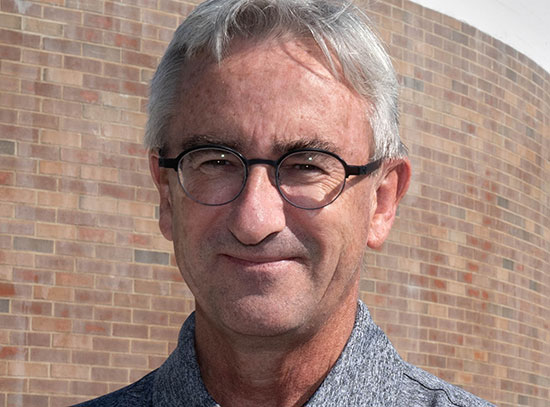
John C. Gordon Elected International Fellow of the Royal Society of Edinburgh
Wednesday, April 16, 2025
John C. Gordon, chair of the Chemistry Division at the U.S. Department of Energy’s Brookhaven National Laboratory, joins a cohort of leading experts recognized for their contributions that shape society in Scotland and beyond.
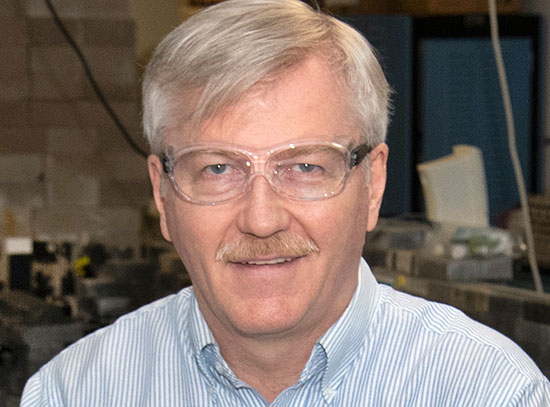
Study Tracks Chromium Chemistry in Irradiated Molten Salts
Wednesday, April 2, 2025
Findings show that radiation-induced chemistry may mitigate metal alloy corrosion in nuclear reactors cooled by molten salts

Brookhaven's Top 10 Discoveries of 2024
Thursday, December 19, 2024
Brookhaven Lab celebrates a year of scientific successes, from creating the biggest bits of antimatter to improving qubits, catalysts, batteries, and more!
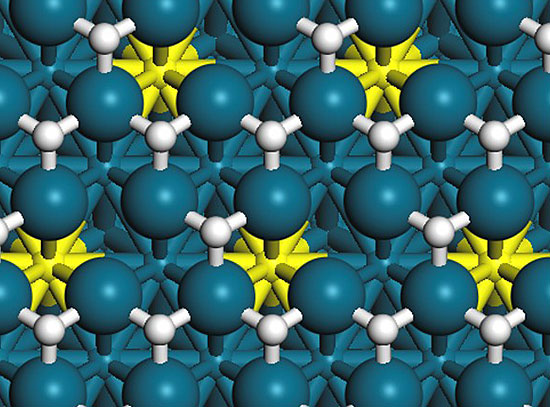
Reaction Conditions Tune Catalytic Selectivity
Tuesday, October 22, 2024
Study reveals potential for leveraging catalyst-environment interactions to design more efficient, effective catalysts

Juan Jimenez Named Blavatnik Regional Awards Finalist
Tuesday, September 17, 2024
Honor recognizes research on catalysts for transforming greenhouse gases into useful products
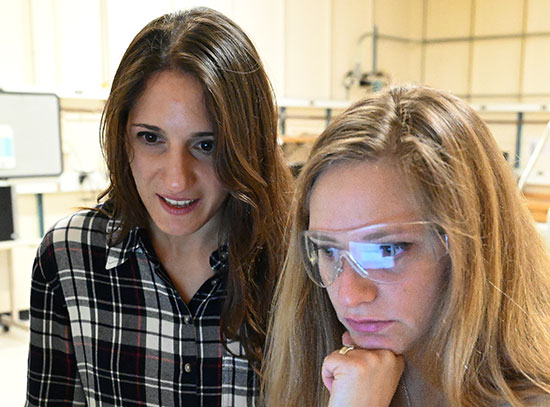
A Potential New Route to Super-Efficient Carbon Dioxide Reduction
Friday, September 6, 2024
A research team led by Brookhaven chemists has discovered a catalyst that can accelerate CO2 reduction approximately 800-fold.

2024 Joanna Fowler Award Winners Announced
Tuesday, September 3, 2024
The Brookhaven Lab Chemistry Division and Brookhaven Women in Science have named Paris Watson, Michele Myong, and Edelmy Marin Bernardez as the recipients of the 2024 Joanna Fowler Award.
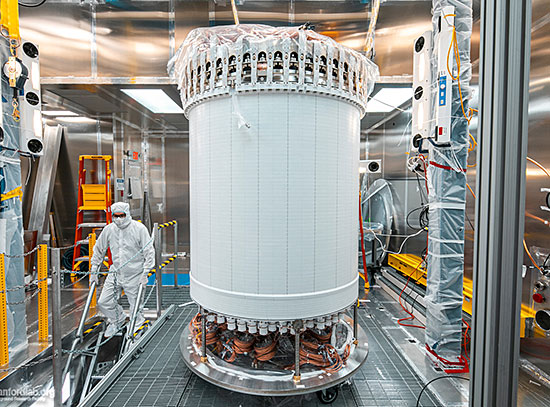
LZ Experiment Sets New Record in Search for Dark Matter
Monday, August 26, 2024
New results from the world’s most sensitive dark matter detector put the best-ever limits on particles called WIMPs, a leading candidate for what makes up our universe’s invisible mass.
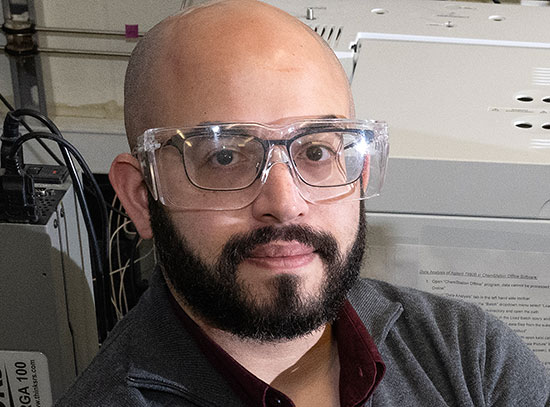
Catalyst for 'One-Step' Conversion of Methane to Methanol
Thursday, August 22, 2024
Scientists demonstrate highly selective catalyst for low-temperature, direct conversion of natural gas to liquid fuel.
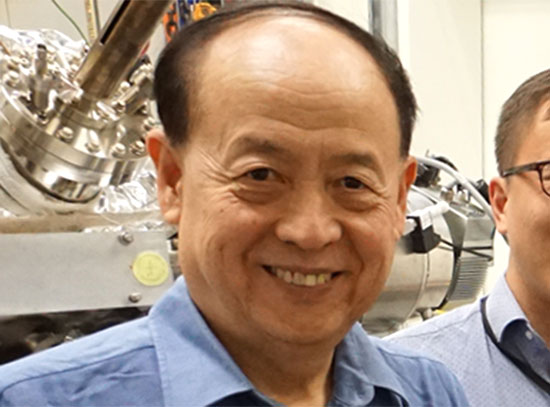
Battery Scientist Honored by DOE's Vehicle Technologies Office
Tuesday, July 30, 2024
Award recognizes contributions to developing techniques for studying, improving battery materials
News By Group
Artificial Photosynthesis
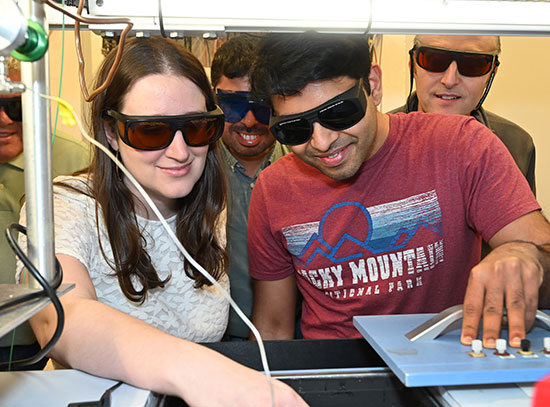
Light-activated Metal Catalyst Selectively Converts CO2 to Industrial Chemical
Monday, June 16, 2025
‘Ligand-based’ reaction mechanism prevents unwanted byproducts, opens possibility of using Earth-abundant metals

A Potential New Route to Super-Efficient Carbon Dioxide Reduction
Friday, September 6, 2024
A research team led by Brookhaven chemists has discovered a catalyst that can accelerate CO2 reduction approximately 800-fold.
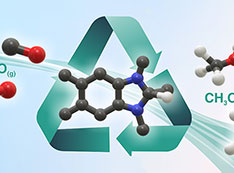
Recyclable Reagent and Sunlight Convert Carbon Monoxide into Methanol
Wednesday, March 20, 2024
Room-temperature, ambient-pressure reaction for cascade conversion of CO2 into liquid fuel
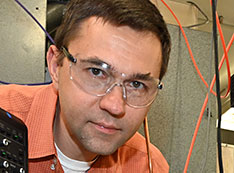
Chemists Unravel Reaction Mechanism for Clean Energy Catalyst
Monday, May 15, 2023
Pulse radiolysis experiments at Brookhaven Lab revealed the reaction mechanism for a key class of water-splitting catalysts.
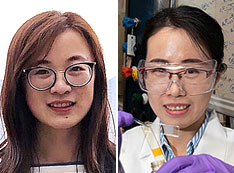
Zhang and Wang Win 2020 Chasman Award; Virtual Ceremony and Talks 5/26
Thursday, May 21, 2020
Brookhaven Women in Science (BWIS) has named Feng Zhang and Lei Wang the 2020 recipients of the Renate W. Chasman Award.
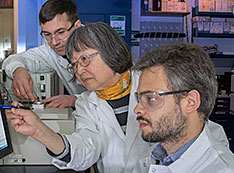
Monitoring Intermediates in CO2 Conversion to Formate by Metal Catalyst
Wednesday, January 29, 2020
The production of formate from CO2 is considered an attractive strategy for the long-term storage of solar renewable energy in chemical form.
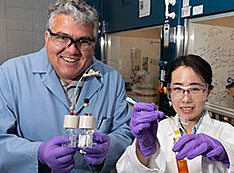
Tethered Chem Combos Could Revolutionize Artificial Photosynthesis
Monday, November 4, 2019
New approach improves efficiency of converting sunlight to hydrogen fuel; provides platform for testing different combos of light-absorbers and catalysts
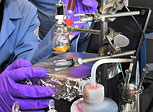
New Efficient Catalyst for Key Step in Artificial Photosynthesis
Tuesday, October 3, 2017
New single-site catalyst speeds up rate of water oxidation and is the first to match the efficiency of the catalytic sites that drive this reaction in nature.

Scientists Design Molecular System for Artificial Photosynthesis
Friday, June 2, 2017
The system is designed to mimic key functions of the photosynthetic center in green plants—light absorption, charge separation, and catalysis—to convert solar energy into chemical energy stored by hydrogen fuel.

Brookhaven Lab Chemist Etsuko Fujita to be Honored at Asian American and Pacific Islander Celebration
Tuesday, May 2, 2017
Etsuko Fujita, a senior chemist at the U.S. Department of Energy’s (DOE) Brookhaven National Laboratory, will be recognized as a “highly accomplished Asian American professional” at the ninth annual Asian American and Pacific Islander Heritage Month Celebration.
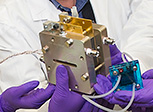
Brookhaven Lab Wins Three 2016 R&D 100 Awards
Tuesday, November 8, 2016
Innovations in microscopy, catalysis, and nanomaterials are among the 100 technologies and services of the past year selected by R&D Magazine to receive awards.
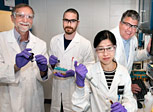
Speeding Up Key Oxygen-Oxygen Bond-Formation Step in Water Oxidation
Monday, May 16, 2016
Scientists have synthesized new molecular catalysts that could drive the reaction needed to efficiently store solar energy in the chemical bonds of clean fuels.
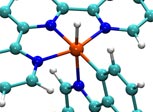
Flipping Molecular Attachments Amps Up Activity of CO2 Catalyst
Monday, October 5, 2015
New research by chemists at Brookhaven Lab and their collaborators may help scientists design more effective catalysts for transforming CO2 to useful products.
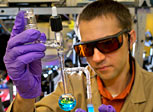
499th Brookhaven Lecture on Wednesday, 11/19: 'Artificial Photosynthesis: Making and Breaking Bonds with Protons and Electrons'
Friday, November 14, 2014
It's not really fair to compare plants with people. Plants can't earn expensive four-year degrees, and they don't keep up with the latest studies linking carb-heavy diets and obesity. But when it comes to this, plants have humans beat—and energy researchers at Brookhaven Lab are on the case.

Ionic Liquid Boosts Efficiency of CO2 Reduction Catalyst
Friday, June 6, 2014
Wouldn't it be nice to use solar- or wind-generated electricity to turn excess carbon dioxide—one of the gases trapping heat in Earth’s atmosphere—into fuels and other useful chemicals?"

Recipe for Low-Cost, Biomass-Derived Catalyst for Hydrogen Production
Wednesday, April 24, 2013
Researchers at Brookhaven Lab describe details of a low-cost, stable, effective catalyst made from renewable soybeans and abundant molybdenum metal that could replace costly platinum in the production of hydrogen.
Catalysis for Alternative Fuels Production
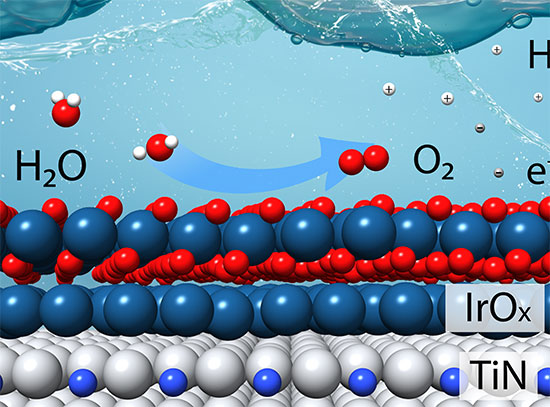
Scientists Make and Test Efficient Water-Splitting Catalyst Predicted by Theory
Tuesday, June 11, 2024
Successful demonstration of improved catalyst may boost production of hydrogen from water
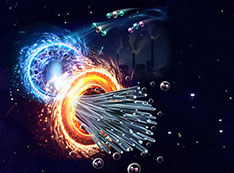
Catalytic Combo Converts CO2 to Solid Carbon Nanofibers
Thursday, January 11, 2024
Tandem reactions converting CO2 to carbon nanofibers could help offset emissions of potent greenhouse gas by locking carbon away in a useful material.
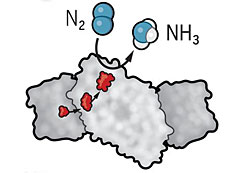
Exploring Greener Approaches to Nitrogen Fixation
Tuesday, June 5, 2018
Brookhaven Lab chemists and other experts in nitrogen research have identified several potential routes for transforming nitrogen that are more environmentally and energy-friendly than today’s chemical processes.
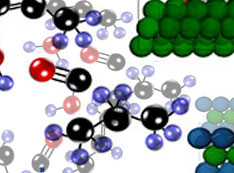
Producing Beneficial Propylene While Consuming a Major Greenhouse Gas
Tuesday, May 15, 2018
Chemists have identified a catalyst to drive the reaction of carbon dioxide and propane to produce propylene, a globally needed chemical building block used to manufacture many everyday items.

Jingguang Chen is the Recipient of the 2017 Robert Burwell Lectureship in Catalysis
Monday, April 24, 2017
Professor Jingguang Chen of Columbia University is the recipient of the 2017 Robert Burwell Lectureship in Catalysis of the North American Catalysis Society, sponsored by Johnson Matthey and administered by The North American Catalysis Society.
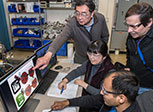
Chemists ID Catalytic 'Key' for Converting CO2 to Methanol
Thursday, March 23, 2017
Results from experiments and computational modeling studies that definitively identify the “active site” of a catalyst commonly used for making methanol from CO2 will guide the design of improved catalysts for transforming a pollutant to useful chemicals.

Brookhaven Lab Scientist Jingguang Chen Recipient of 2015 George A. Olah Award
Wednesday, August 27, 2014
Recognized for his research on catalysis and electrocatalysis, Brookhaven Lab chemist Jingguang Chen's name has been added to the distinguished list of recipients of the American Chemical Society’s George A. Olah Award.
Catalysis: Reactivity & Structure

Brookhaven's Top 10 Discoveries of 2024
Thursday, December 19, 2024
Brookhaven Lab celebrates a year of scientific successes, from creating the biggest bits of antimatter to improving qubits, catalysts, batteries, and more!

Reaction Conditions Tune Catalytic Selectivity
Tuesday, October 22, 2024
Study reveals potential for leveraging catalyst-environment interactions to design more efficient, effective catalysts

Juan Jimenez Named Blavatnik Regional Awards Finalist
Tuesday, September 17, 2024
Honor recognizes research on catalysts for transforming greenhouse gases into useful products

Catalyst for 'One-Step' Conversion of Methane to Methanol
Thursday, August 22, 2024
Scientists demonstrate highly selective catalyst for low-temperature, direct conversion of natural gas to liquid fuel.
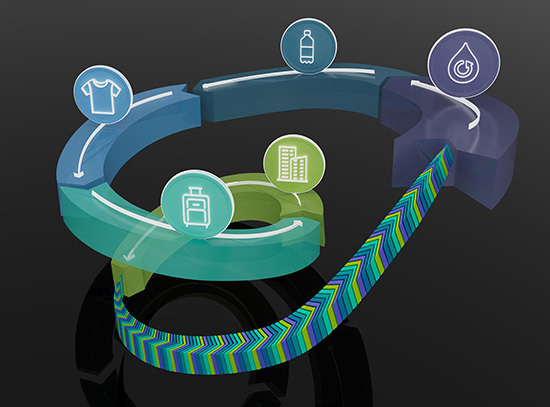
Roadmap to Close the Carbon Cycle
Wednesday, May 1, 2024
Brookhaven chemists are interested in developing catalysts and understanding chemical processes that could enable the production of sustainable fuels or easily transform hydrogen and emitted waste carbon/carbon dioxide into useful chemicals.
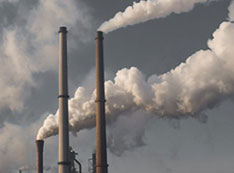
CO2 Conversion Helps Industry, Addresses Climate
Tuesday, February 20, 2024
Engineers at the University of Cincinnati created a more efficient way of converting carbon dioxide into valuable products while simultaneously addressing climate change.

Machine Learning Framework IDs Targets for Improving Catalysts
Tuesday, May 10, 2022
Method provides details on reaction kinetics and zeros in on steps where tweaks could improve production of desired products
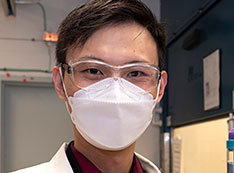
Steering Conversion of CO2 and Ethane to Desired Products
Wednesday, February 9, 2022
Study IDs key catalytic features that drive reaction specificity when transforming CO2 (a greenhouse gas) and an underutilized component of natural gas into higher-value chemicals
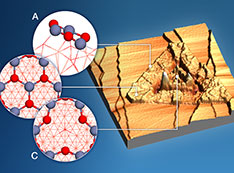
Converting Methane to Methanol—With and Without Water
Monday, November 8, 2021
Studies of common copper-zinc oxide catalyst suggest strategies for improving water-free conversion.
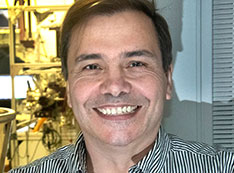
Jose Rodriguez Named Fellow of the American Vacuum Society
Friday, October 15, 2021
Brookhaven Lab chemist receives recognition for his research into clean-energy and pollution-controlling catalysts.

Zhang and Wang Win 2020 Chasman Award; Virtual Ceremony and Talks 5/26
Thursday, May 21, 2020
Brookhaven Women in Science (BWIS) has named Feng Zhang and Lei Wang the 2020 recipients of the Renate W. Chasman Award.
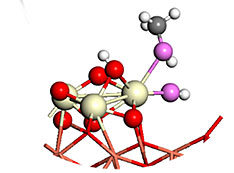
Water is Key in Catalytic Conversion of Methane to Methanol
Thursday, April 30, 2020
New atomic-level details of reaction dynamics could aid conversion of natural gas component to an easy-to-transport liquid fuel/industrial chemical feedstock
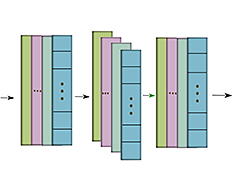
Machine-Learning Analysis of X-ray Data Picks Out Key Catalytic Properties
Tuesday, October 22, 2019
Application of novel artificial intelligence approach identifies active phase of catalyst that converts carbon dioxide to methane.
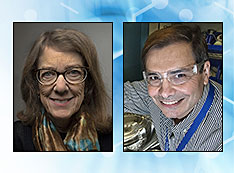
Two Brookhaven Lab Scientists Named DOE Office of Science Distinguished Fellows
Wednesday, October 16, 2019
Higgs theorist Sally Dawson and catalysis researcher José Rodriguez will receive $1 million each to advance their work.
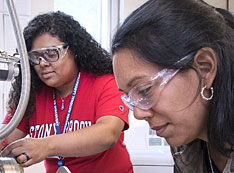
Interns Investigate Catalysts for a Greener Future
Wednesday, July 17, 2019
Stephanie Taboada and Nylette Lopez collaborate to explore ideal chemistry for converting CO2 and methane to syngas
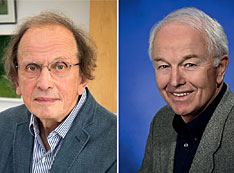
Journal Special Issues Honor Chemists Radoslav Adzic and Jan Hrbek
Tuesday, January 22, 2019
The Journal of the Electrochemical Society and Surface Science recognized the chemists’ contributions to electrocatalysis and catalysis.
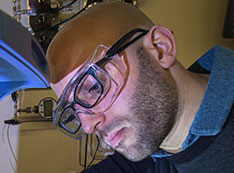
Cliff Gerlak: From U.S. Marine Veteran to Chemical Engineer
Friday, January 18, 2019
Brookhaven Lab is helping support former United States Marine Cliff Gerlak steer his career in chemical engineering

Producing Beneficial Propylene While Consuming a Major Greenhouse Gas
Tuesday, May 15, 2018
Chemists have identified a catalyst to drive the reaction of carbon dioxide and propane to produce propylene, a globally needed chemical building block used to manufacture many everyday items.
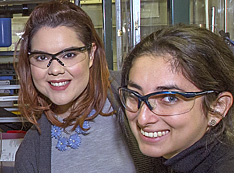
Despite Devastation, They—and Their Science—Go On
Monday, March 26, 2018
In the aftermath of Hurricane Maria, five students from the University of Puerto Rico were welcomed to continue their research at Brookhaven Lab—thanks to the Lab's Office of Educational Programs, mentors, and a scholarship fund created in honor of a late Brookhaven biologist.
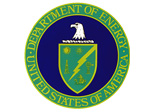
Three Brookhaven Lab Scientists Selected to Receive Early Career Research Program Funding
Tuesday, August 15, 2017
Three scientists at the U.S. Department of Energy’s (DOE) Brookhaven National Laboratory have been selected by DOE’s Office of Science to receive significant research funding through its Early Career Research Program.
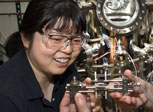
New Efficient, Low-Temperature Catalyst for Converting Water and CO to Hydrogen Gas and CO2
Thursday, June 22, 2017
Low-temperature “water gas shift” reaction produces high levels of pure hydrogen for potential applications, including fuel cells
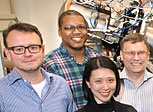
Brookhaven Lab, Stony Brook University Scientists Present Catalysis Research Opportunities at NSLS-II
Friday, April 21, 2017
In the March 31 online edition of Synchrotron Radiation News, an article authored by a group of researchers from Brookhaven National Laboratory and Stony Brook University describes the research opportunities and tools available (or coming soon) to catalysis scientists at Brookhaven's new state-of the-art synchrotron facility, the National Synchrotron Light Source II.

Chemists ID Catalytic 'Key' for Converting CO2 to Methanol
Thursday, March 23, 2017
Results from experiments and computational modeling studies that definitively identify the “active site” of a catalyst commonly used for making methanol from CO2 will guide the design of improved catalysts for transforming a pollutant to useful chemicals.

Brookhaven's PubSci Takes a Close Look at the Chemistry of Catalysis
Monday, November 21, 2016
PubSci, Brookhaven National Laboratory's science café and conversation series, is bringing the periodic table to the pub, with an event on November 15 entitled, “The Cutting Edge of Chemistry and the Reactions Powering the World.” The evening will include discussion and a Q&A with chemists and material scientists on the world of catalysts and clean fuels.
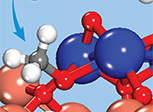
New Catalyst for Making Methanol from Methane
Tuesday, November 15, 2016
Brookhaven scientists have developed a catalyst for converting methane, the main component of abundant natural gas, directly to methanol at fairly low temperatures. Refining this catalyst could lead to a major commercial breakthrough.

PubSci: The Cutting Edge of Chemistry
Tuesday, November 1, 2016
PubSci, Brookhaven National Laboratory's science café and conversation series, is bringing the periodic table to the pub, with an event on November 15 entitled, "The Cutting Edge of Chemistry and the Reactions Powering the World." The evening will include discussion and a Q&A with chemists and material scientists on the world of catalysts and clean fuels.
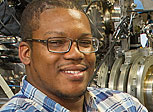
Meet Robert Palomino: 'Give Everything a Shot!'
Tuesday, October 20, 2015
After earning his master’s and Ph.D. in physical chemistry at Stony Brook University, Robert Palomino is now one of Brookhaven Lab’s new postdocs in the Alliance for Graduate Education and the Professoriate–Transformation program, working at the Lab’s new National Synchrotron Light Source II to analyze the structure and other properties of catalysts.

Nanostructured Metal-Oxide Catalyst Efficiently Converts CO2 to Methanol
Thursday, July 31, 2014
Scientists have discovered a new catalytic system for converting carbon dioxide (CO2) to methanol—a key commodity used to create a wide range of industrial chemicals and fuels.
Electrochemical Energy Storage

Brookhaven's Top 10 Discoveries of 2024
Thursday, December 19, 2024
Brookhaven Lab celebrates a year of scientific successes, from creating the biggest bits of antimatter to improving qubits, catalysts, batteries, and more!

Battery Scientist Honored by DOE's Vehicle Technologies Office
Tuesday, July 30, 2024
Award recognizes contributions to developing techniques for studying, improving battery materials
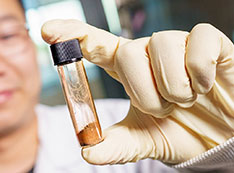
Healable Cathode Could Unlock Potential of Solid-state Lithium-sulfur Batteries
Monday, March 11, 2024
Researchers have moved one step closer to making solid-state batteries from lithium and sulfur a practical reality.
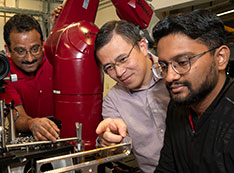
Engineered Battery Chemistry for Fast Charging Capabilities
Friday, January 26, 2024
An electrolyte additive increased the charging rate of lithium metal batteries and led to new discoveries about battery chemistry
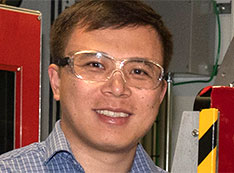
X-rays Reveal Elusive Chemistry for Better EV Batteries
Monday, December 5, 2022
Scientists unraveled the complex chemical mechanisms of a battery component that is crucial for boosting energy density: the interphase.

Electrolyte Additive Offers Lithium Battery Performance Breakthrough
Wednesday, June 1, 2022
Additive leads to protective surface layer for nickel-rich cathodes, improving battery performance at high voltages.
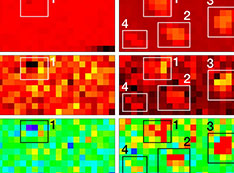
Clues to Better Batteries Emerge from Tracking Lithium
Monday, February 28, 2022
X-ray technique reveals irregularities and dead spots arise due to incomplete lithium stripping from anode during battery discharge

Scientists Discover New Approach to Stabilize Cathode Materials
Thursday, June 3, 2021
Chemists studied an elusive material property and confirmed its ability to stabilize cathodes for next-gene electric vehicle batteries.
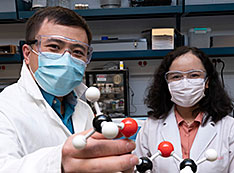
Chemists Settle Battery Debate, Propel Research Forward
Thursday, January 28, 2021
New findings on a battery reaction mechanism could facilitate the development of better batteries for electric vehicles.
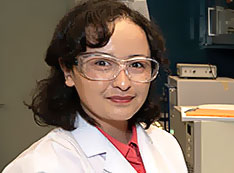
Chemistry Postdoc Receives Battery500 Young Investigator Award
Thursday, October 10, 2019
Zulipiya Shadike will receive $50K in funding for research aimed at improving batteries for electric vehicles
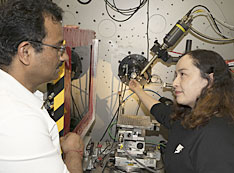
Scientists Design Organic Cathode for High Performance Batteries
Thursday, May 30, 2019
The new, sulfur-based material is more energy-dense, cost-effective, and environmentally friendly than traditional cathodes.
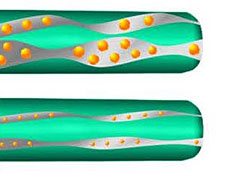
Tripling the Energy Storage of Lithium-Ion Batteries
Thursday, June 14, 2018
Scientists have synthesized a new cathode material from iron fluoride that surpasses the capacity limits of traditional lithium-ion batteries.
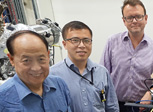
Scientists Design Promising New Cathode for Sodium-based Batteries
Thursday, July 20, 2017
Scientists have designed a new type of cathode that could make the mass production of sodium batteries more feasible. Batteries based on plentiful and low-cost sodium are of great interest to both scientists and industry as they could facilitate a more cost-efficient production process for grid-scale energy storage systems, consumer electronics and electric vehicles.

Brookhaven Scientists Contribute to Effort to Make Next-generation Electric Vehicle Batteries
Friday, July 29, 2016
Brookhaven chemists contribute to PNNL-led effort to make next-generation electric vehicle batteries.
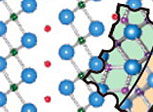
Tracking Heat-Driven Decay in Leading Electric Vehicle Batteries
Monday, October 27, 2014
Scientists reveal the atomic-scale structural and electronic degradations that plague rechargeable lithium-ion batteries and make them vulnerable during high-temperature operations.
Electron- and Photo-Induced Processes for Molecular Energy Conversion

Light-activated Metal Catalyst Selectively Converts CO2 to Industrial Chemical
Monday, June 16, 2025
‘Ligand-based’ reaction mechanism prevents unwanted byproducts, opens possibility of using Earth-abundant metals

Study Tracks Chromium Chemistry in Irradiated Molten Salts
Wednesday, April 2, 2025
Findings show that radiation-induced chemistry may mitigate metal alloy corrosion in nuclear reactors cooled by molten salts
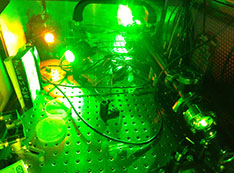
Ionic Liquids' Good Vibrations Change Laser Colors with Ease
Thursday, January 19, 2023
Method offers approach to shift laser colors for applications in science, industry, and medicine.
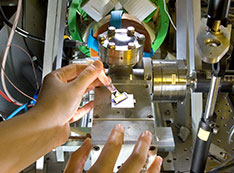
A Radical New Approach in Synthetic Chemistry
Wednesday, November 23, 2022
Pulse radiolysis experiments help reveal how unpaired electrons at one end of a molecule can initiate chemistry at ‘distant’ locations.
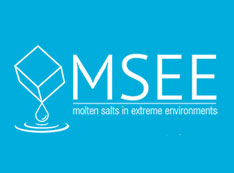
DOE Energy Frontier Research Center on Molten Salts Renewed for Four Years
Friday, September 9, 2022
Research has potential applications for improving safety of nuclear energy.
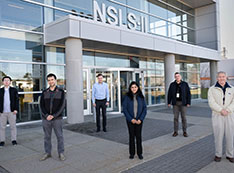
Researchers Team up to get a Clearer Picture of Molten Salts
Monday, November 29, 2021
Researchers at the Department of Energy’s Oak Ridge, Brookhaven and Idaho national laboratories and Stony Brook University have developed a novel approach to gain fundamental insights into molten salts, a heat transfer medium important to advanced energy technologies.
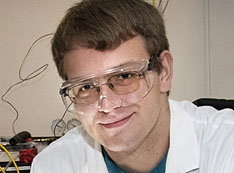
Summer Intern Christopher Hayes Studies Charge Separation for Solar Energy
Friday, August 9, 2019
The recent SBU graduate uses ultraviolet-visible spectroscopy to understand how organic polymers “doped” with boron absorb light energy.
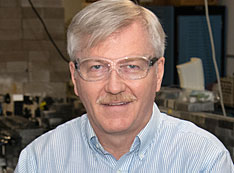
James Wishart Awarded Maria Skłodowska-Curie Medal
Friday, February 15, 2019
Wishart receives recognition for achievements in the field of radiation chemistry and collaboration with Polish scientists.
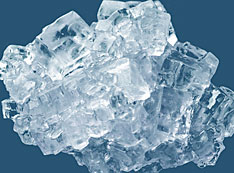
Funding for New DOE Energy Frontier Research Center at Brookhaven Lab
Friday, July 6, 2018
Scientists will explore properties of “molten salts” with potential for use in nuclear energy applications

Exploring Greener Approaches to Nitrogen Fixation
Tuesday, June 5, 2018
Brookhaven Lab chemists and other experts in nitrogen research have identified several potential routes for transforming nitrogen that are more environmentally and energy-friendly than today’s chemical processes.
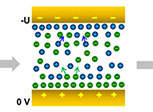
Scientists Demonstrate New Real-Time Technique for Studying Ionic Liquids at Electrode Interfaces
Tuesday, May 16, 2017
This electron microscope-based imaging technique could help scientists optimize the performance of ionic liquids for batteries and other energy storage devices.
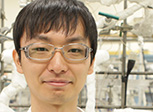
Tomoyasu Mani Wins 2016 Blavatnik Regional Award for Young Scientists
Thursday, October 13, 2016
Mani is being recognized for his work at Brookhaven Lab to understand the physical processes occurring in organic materials used to harness solar energy.
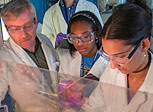
It's Ionic
Monday, September 29, 2014
Chemist James Wishart and Queensborough Community College Professor Sharon Lall-Ramnarine collaborate to help develop next generation of scientists and ionic liquids for future batteries, solvents, and more.
Nanostructured Interfaces for Catalysis
Neutrino and Nuclear Chemistry

LZ Experiment Sets New Record in Search for Dark Matter
Monday, August 26, 2024
New results from the world’s most sensitive dark matter detector put the best-ever limits on particles called WIMPs, a leading candidate for what makes up our universe’s invisible mass.
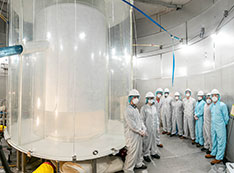
Berkeley Lab Researchers Record Successful Startup of LUX-ZEPLIN Dark Matter Detector at Sanford Underground Research Facility
Thursday, July 7, 2022
Brookhaven Lab chemists developed liquid scintillator that fills an essential component of the detector designed to veto false signals.

Brookhaven Chemist Minfang Yeh Wins 2021 DPF Instrumentation Award
Thursday, April 28, 2022
The award honors Yeh’s pioneering work in the development and production of high-performance water-based liquid scintillators for particle physics experiments.
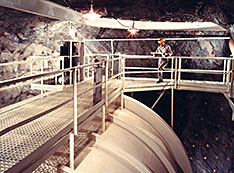
APS Designates Sanford Lab, Morgan State University as Historic Physics Sites
Monday, September 14, 2020
Recognition honors site of Brookhaven Lab chemist Ray Davis’s Nobel Prize-winning solar neutrino research
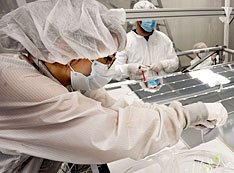
PROSPECTing for Antineutrinos
Friday, May 18, 2018
The Precision Reactor Oscillation and Spectrum Experiment (PROSPECT) has completed the installation of a novel antineutrino detector that will probe the possible existence of a new form of matter.
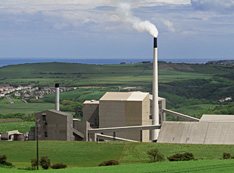
Lawrence Livermore to lead United States-United Kingdom consortium for demonstrating remote monitoring of nuclear reactors
Tuesday, March 27, 2018
Harnessing the unusual characteristics of antineutrinos, Lawrence Livermore National Laboratory will lead a new international collaboration for nonproliferation research. Scientists from Brookhaven Lab played an important role in the design of a demonstration detector for this research.
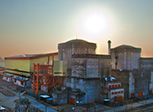
New Measurements Suggest 'Antineutrino Anomaly' Fueled by Modeling Error
Tuesday, April 4, 2017
A new analysis indicates that a previously observed antineutrino deficit may stem from a miscalculation in the predicted rate of antineutrino production for one particular component of nuclear reactor fuel.
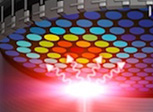
Next-Gen Dark Matter Detector in a Race to Finish Line
Tuesday, February 14, 2017
Berkeley Lab is leading the construction of a mile-deep experiment that seeks to detect weakly interacting massive particles, a theorized type of dark matter. Brookhaven Lab chemists developed the liquid scintillator that will help veto false signals.

Chemistry Department Celebrates Role in Nobel-Winning Neutrino Science
Wednesday, December 16, 2015
The event recognizes the achievements of Brookhaven’s Solar Neutrino Group, which made important contributions to neutrino experiments honored by the 2015 Nobel Prize in Physics.
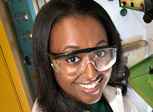
Postdoc Alesha Harris: Tackling Chemistry from Nanoparticles to Neutrinos
Tuesday, November 24, 2015
Although her graduate work was in nanoparticles, Alesha Harris joined Brookhaven National Laboratory as an Alliance for Graduate Education and the Professoriate–Transformation (AGEP-T) postdoc working with Minfang Yeh, who leads the neutrino and nuclear chemistry group.
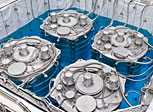
Neutrino Researchers Win 'Breakthrough Prize' in Fundamental Physics
Monday, November 9, 2015
Five experiments conducting research on the subtle transformations of ghostlike subatomic neutrinos, including the international Daya Bay Collaboration, have been awarded a "Breakthrough Prize" in fundamental physics.
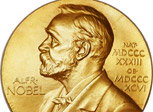
Brookhaven Lab's Links to 2015 Nobel Prize in Physics
Wednesday, October 7, 2015
The U.S. Department of Energy’s Brookhaven National Laboratory joins in the worldwide celebration of physicists Takaaki Kajita and Arthur B. McDonald, who were awarded the 2015 Nobel Prize in physics for their roles in demonstrating the “flavor-changing” property of neutrinos. Brookhaven Lab scientists made important contributions to these neutrino experiments, fueled by the Lab’s legacy in the study of these abundant yet elusive subatomic particles.
Structure and Dynamics of Applied Nanomaterials
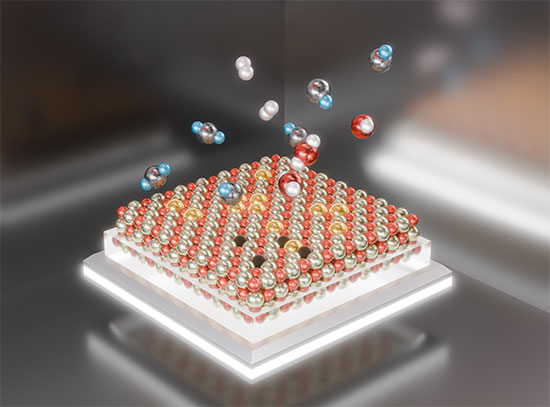
Study Reveals Reversible Assembly of Platinum Catalyst
Monday, June 3, 2024
Combo of methods explains how a nanoparticle catalyst assembles from single atoms during use and then disassembles for reuse

CO2 Conversion Helps Industry, Addresses Climate
Tuesday, February 20, 2024
Engineers at the University of Cincinnati created a more efficient way of converting carbon dioxide into valuable products while simultaneously addressing climate change.
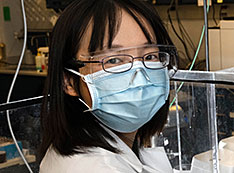
Study Reveals Platinum's Role in Clean Fuel Conversion
Wednesday, February 10, 2021
Identifying specific platinum atoms activated in a water gas shift reaction catalyst could guide the design of less costly efficient catalysts.

Machine-Learning Analysis of X-ray Data Picks Out Key Catalytic Properties
Tuesday, October 22, 2019
Application of novel artificial intelligence approach identifies active phase of catalyst that converts carbon dioxide to methane.
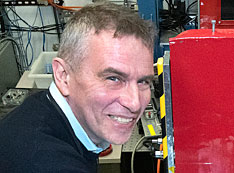
Catalyst Renders Nerve Agents Harmless
Monday, April 22, 2019
Scientists have studied a catalyst that decomposes nerve agents, eliminating their harmful and lethal effects.
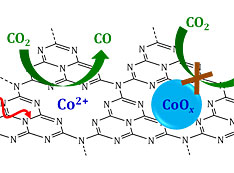
Light-Activated, Single-Ion Catalyst Breaks Down Carbon Dioxide
Monday, November 26, 2018
X-ray studies reveal structural details that may point the way to designing better catalysts for converting pollutant gas into useful products.

From Face Recognition to Phase Recognition: Neural Network Captures Atomic-Scale Rearrangements
Thursday, May 31, 2018
Scientists use approach analogous to facial-recognition technology to track atomic-scale rearrangements relevant to phase changes, catalytic reactions, and more.
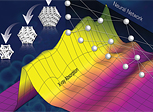
Scientists Use Machine Learning to Translate 'Hidden' Information that Reveals Chemistry in Action
Tuesday, October 10, 2017
New method allows on-the-fly analysis of how catalysts change during reactions, providing crucial information for improving performance.
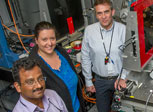
Scientists Find New Method to Control Electronic Properties of Nanocrystals
Thursday, August 10, 2017
Researchers from The Hebrew University of Jerusalem and Brookhaven National Laboratory have discovered new effects of an important method for modulating semiconductors. The method, which works by creating open spaces or "vacancies" in a material's structure, enables scientists to tune the electronic properties of semiconductor nanocrystals—semiconductor particles that are smaller than 100 nanometers.

Brookhaven Lab, Stony Brook University Scientists Present Catalysis Research Opportunities at NSLS-II
Friday, April 21, 2017
In the March 31 online edition of Synchrotron Radiation News, an article authored by a group of researchers from Brookhaven National Laboratory and Stony Brook University describes the research opportunities and tools available (or coming soon) to catalysis scientists at Brookhaven's new state-of the-art synchrotron facility, the National Synchrotron Light Source II.

Brookhaven Lab-Led Research Aims to Develop Protections Against Chemical Warfare Agents
Tuesday, April 11, 2017
Scientists at Brookhaven National Laboratory are participating in a collaborative effort to study how the use of zirconium-based metal organic frameworks and niobium-based polyoxometalates may be effectively used in gas masks to capture and decompose dangerous chemical agents like Sarin.
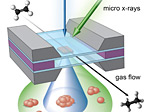
X-Rays and Electrons Join Forces To Map Catalytic Reactions in Real-Time
Monday, June 29, 2015
New technique combines electron microscopy and synchrotron x-rays at Brookhaven Lab to track chemical reactions under real operating conditions.
Surface Electrochemistry and Electrocatalysis
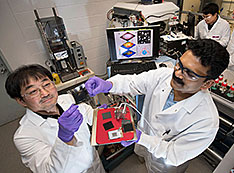
Coming Down the Pike: Long-Haul Trucks Powered by Hydrogen Fuel Cells
Thursday, October 8, 2020
Brookhaven will contribute to a new consortium whose goal is to enable widespread commercialization of fuel cells for heavy-duty transportation.
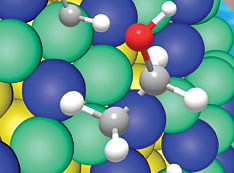
New Core-Shell Catalyst for Ethanol Fuel Cells
Friday, June 7, 2019
New catalyst greatly boosts efficiency of ethanol electro-oxidation, offering promise for liquid-fuel-cell-powered drones.

Journal Special Issues Honor Chemists Radoslav Adzic and Jan Hrbek
Tuesday, January 22, 2019
The Journal of the Electrochemical Society and Surface Science recognized the chemists’ contributions to electrocatalysis and catalysis.

Despite Devastation, They—and Their Science—Go On
Monday, March 26, 2018
In the aftermath of Hurricane Maria, five students from the University of Puerto Rico were welcomed to continue their research at Brookhaven Lab—thanks to the Lab's Office of Educational Programs, mentors, and a scholarship fund created in honor of a late Brookhaven biologist.

Radoslav Adzic Named Senior Scientist Emeritus
Thursday, November 16, 2017
Emeritus status was granted to Radoslav Adzic of Brookhaven Lab's Chemistry Division. He was leader of the Lab's Surface Electrochemistry and Electrocatalysis group for the past decade and retired on Oct. 20.

Brookhaven Lab Wins Three 2016 R&D 100 Awards
Tuesday, November 8, 2016
Innovations in microscopy, catalysis, and nanomaterials are among the 100 technologies and services of the past year selected by R&D Magazine to receive awards.
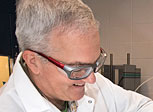
Moving Improvements in Electric Vehicle Fuel-Cell Catalysts from the Laboratory to the Highway
Tuesday, August 23, 2016
Brookhaven chemists received funding for their projects in innovative hydrogen fuel cell technology from DOE’s Technology Commercialization Fund.

Recipe for Low-Cost, Biomass-Derived Catalyst for Hydrogen Production
Wednesday, April 24, 2013
Researchers at Brookhaven Lab describe details of a low-cost, stable, effective catalyst made from renewable soybeans and abundant molybdenum metal that could replace costly platinum in the production of hydrogen.




